Salon d’Amour, conceived by multimedia artist Margret Wibmer, is a performance and long term project that engages the public as actors. The unique masks developed by the artist and a selection of curated poems, love letters and texts by renowned artists, serve as conduits for engagement, inviting us to reimagine love as a force of transformation, one that reshapes our relationship with the world and each other. Set within a carefully orchestrated space, participants are guided through an intimate journey— a world of beauty, uncertainty and fantasy. They move through different historical times, places and ephemeral spaces, engaging with various perspectives, worlds and cultures, while exploring love as an antidote to its commodified version.
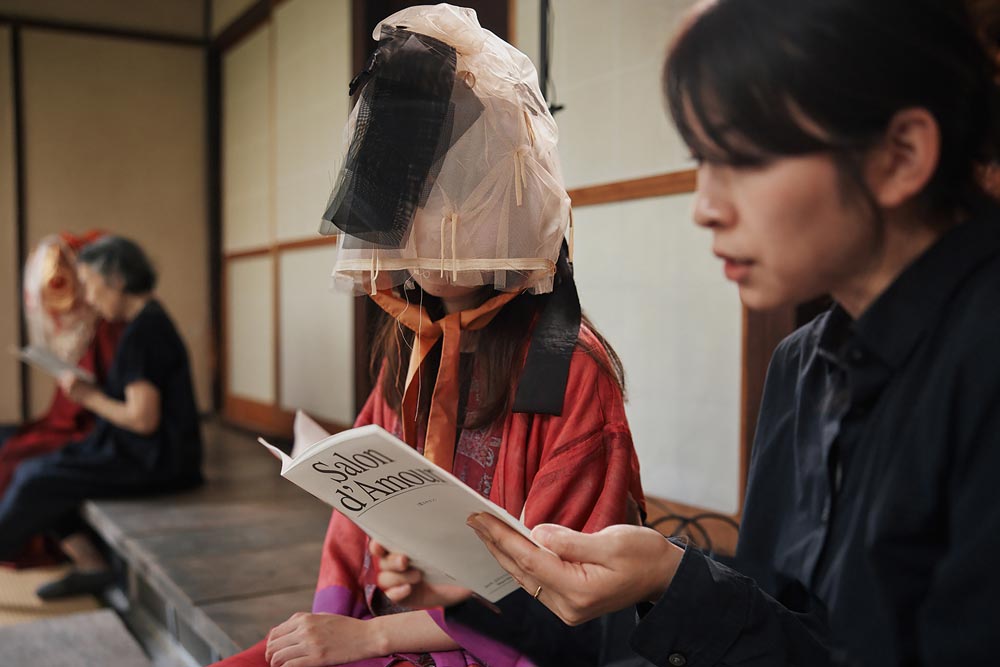
The central question this work explores is: how can humans and non-humans navigate shared realms of reciprocity, cooperation, and collaboration—creating new worlds amid social and ecological collapse?
This exploration is facilitated through a site specific choreography and tolls developed by Margret Wibmer. Participants are guided to enter the performance space one by one, taking their place in pairs: one as a reader, the other as a masked listener. The setting, animated by shifting light and a soundscape developed in collaboration with composer Robert Poss, heightens the sensory experience.The manuscript, read aloud by participants, features a curated selection of excerpts from novellas, poems, and love letters by renowned writers and artists.
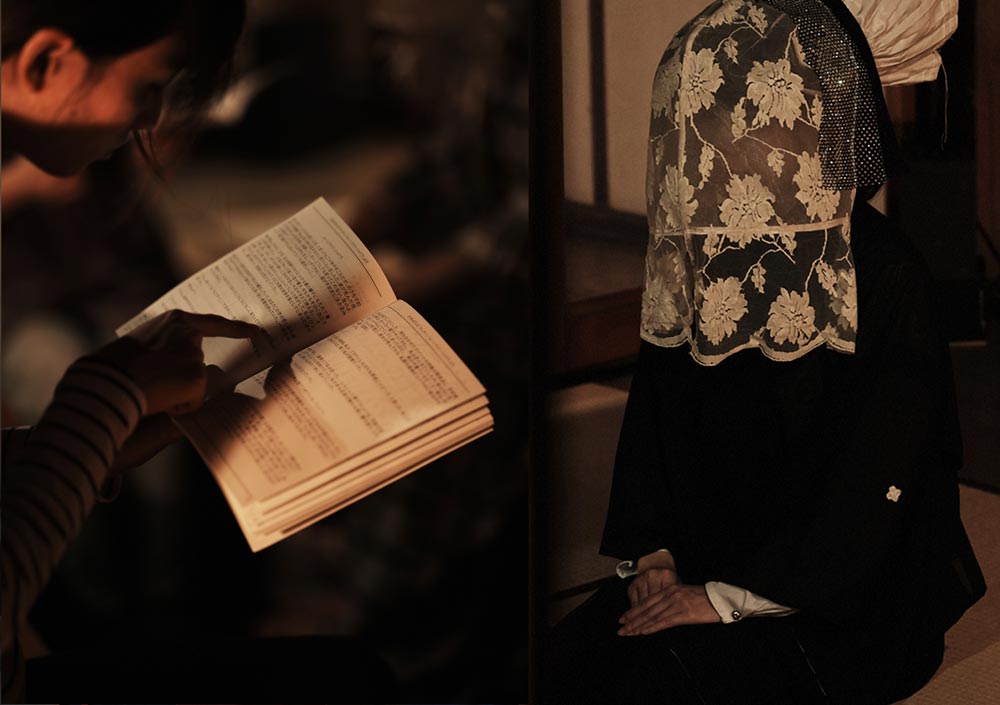
As voices rise in unison, each reader breathes life into words drawn from love letters, poems and texts by renowned artists and writers such as—James Baldwin, Frida Kahlo, John Cage, Ursula K. Le Guin, Mohamedou Ould Slahi, Marianna Maruyama and others. They speak, not to an expectant gaze, but to a silent, masked presence. The listener, veiled in a full face mask, a wearable sculpture made of textiles, hair and other objects, surrenders to an unfamiliar anonymity.
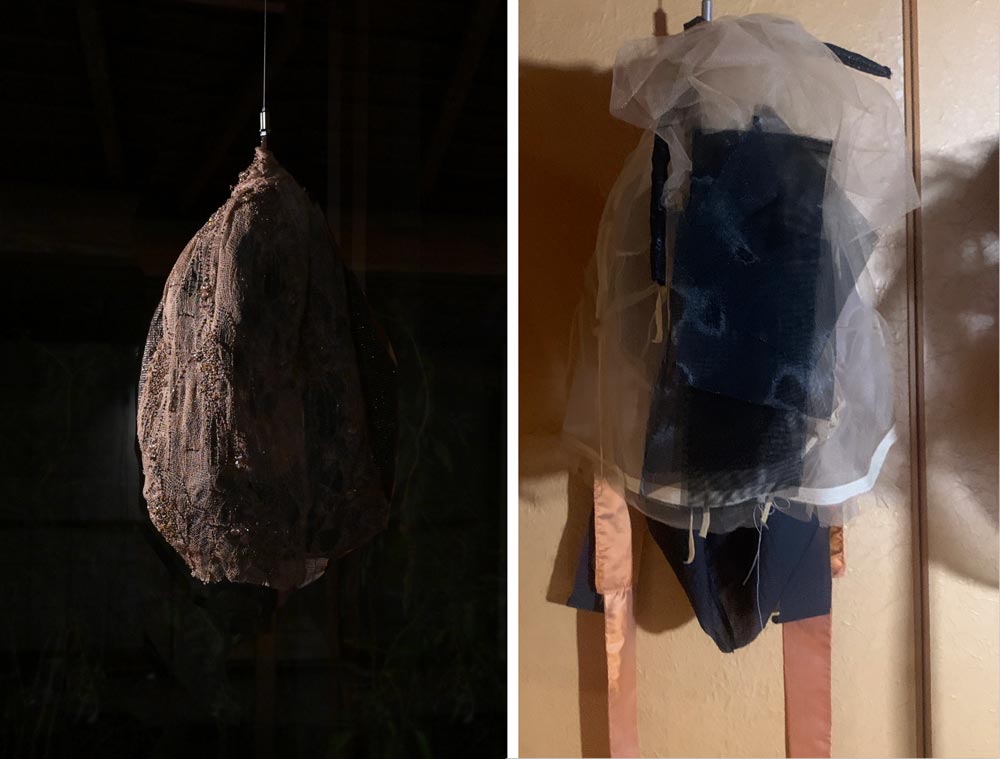
Stripped of outward expression, the masked figures drift between the rhythms of speech and silence, absorbing echoes of love’s many voices. In this moment, listening becomes both an outward and inward act—a rare kind of attunment, free from expectation. Those who have worn the mask describe it as a passage into another realm, a dissolution of self that opens new channels of perception.
The collective murmur of voices—layered, overlapping, distinct yet interwoven—form a tapestry of sound, akin to prayer or chant. Then, the moment arrives: a quiet shift, a reversal of roles. The listener becomes the reader, and the cycle continues—a delicate symphony of presence, absence, and transformation.
Salon d’Amour was developed during an artist in residency at Ikuyama House in the Kikugawa area in Kanazawa, Japan, as part of A Place That is Vanishing While Being Born (Oct 19 – Nov 18 2024), an exhibition and community project organised by NPO ’Tsuzuru’, curated by Akane Nakamori and Sae Shimizu. The exhibition was a collaboration with ‘Dancing with all: An Ecology of Empathy‘ , which was on view at 21st Century Museum in Kanazawa. Video documentation performance by Nik van der Giesen. Kanazawa, 2024.
Salon d’Amour concept, art direction, choreography, manuscript, masks: Margret Wibmer; Soundscape: Robert Poss; Sound design and engineering Kanazawa: Norihiro Mori – Modrilla Studio; Videography, photography: Nik van der Giesen; Graphic design manuscript: PEACH Wien; Translations: Kagari Ishikawa, Nik van der Giesen, Sae Shimizu; Performance assistants: Akane Nakamori, Sae Shimizu, Arisa Kasama, Louis Etoundi Menanga ; Participants: the public. Supported by: Housing and Community Foundation Shibuya Science, Culture and Sports Foundation, Istyle Art and SportsFoundation, Federal Ministry Republic of Austria – Arts, Culture, Civil Service and Sport.
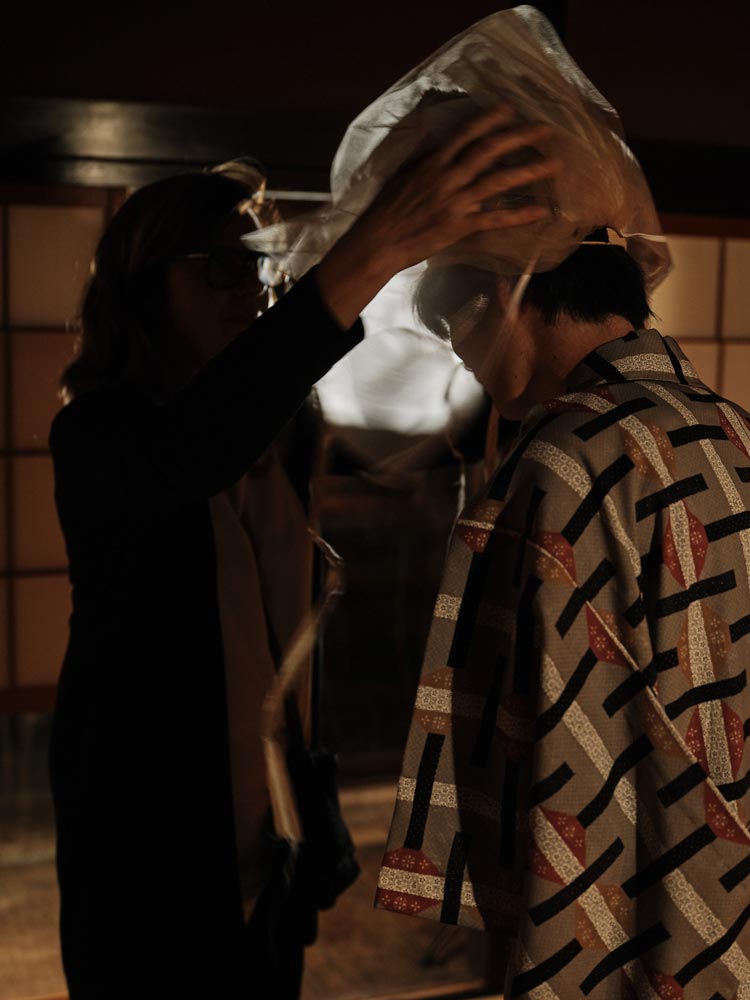
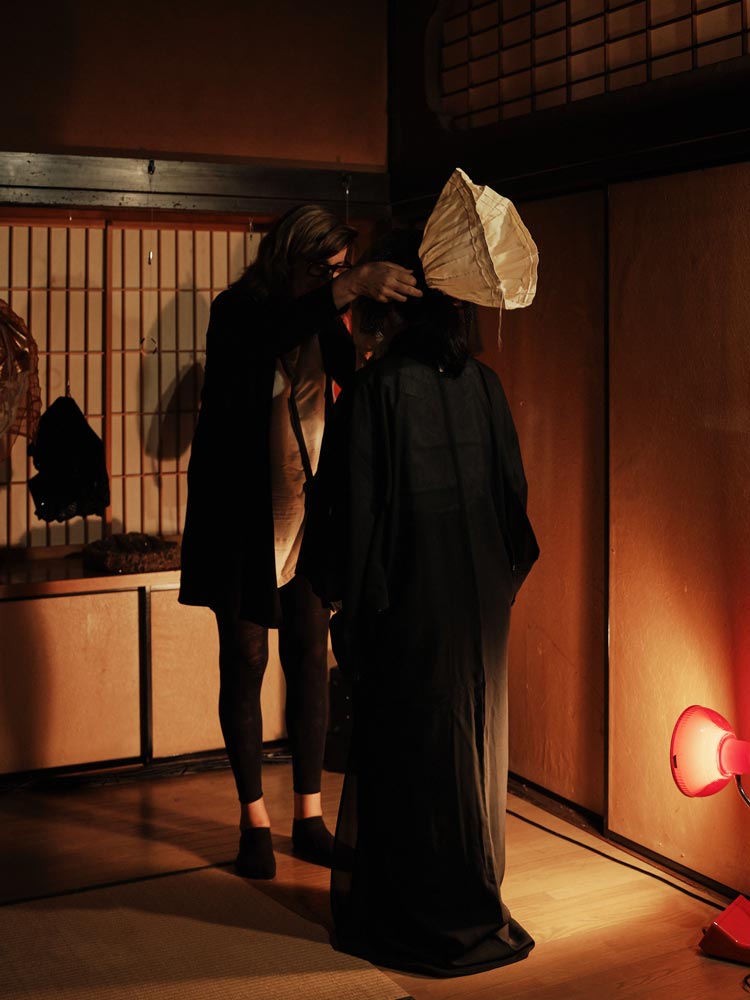
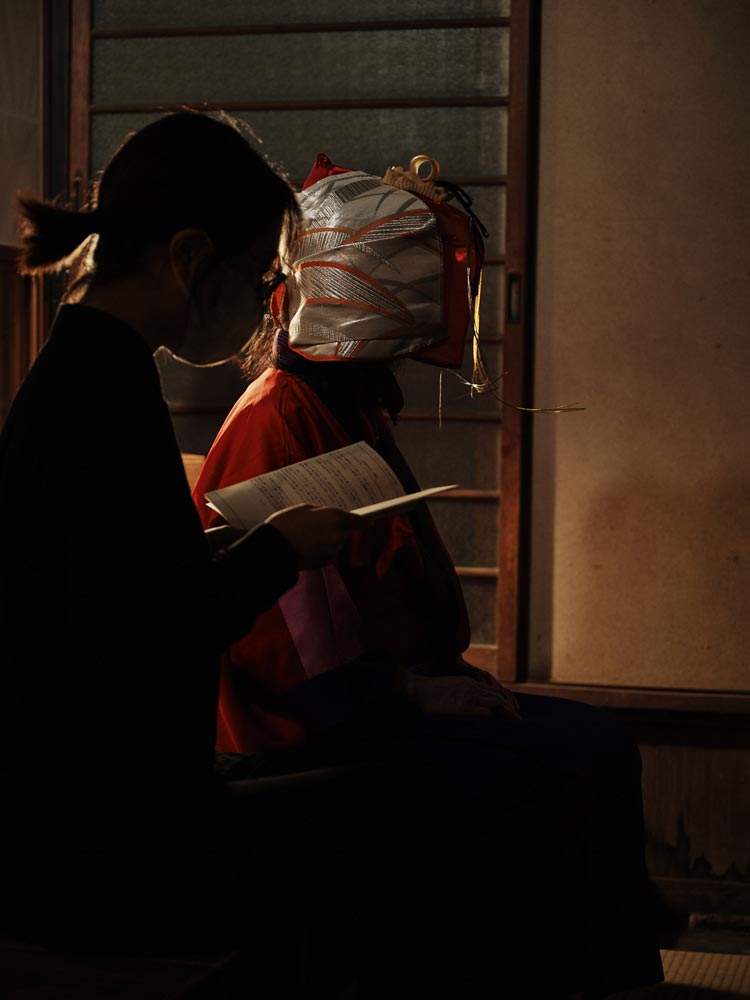
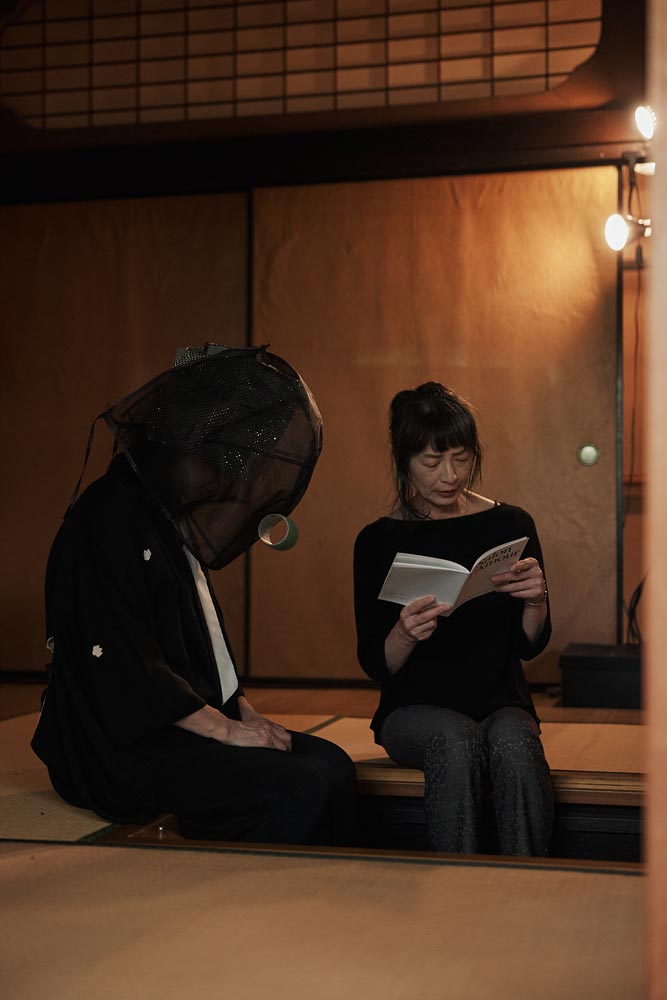
‘Salon d’Amour’ performance Oberndorf, Austria. Feb. 2025. Corporate event i.c.w. Raiffeisenbank Kitzbühel – St. Johann
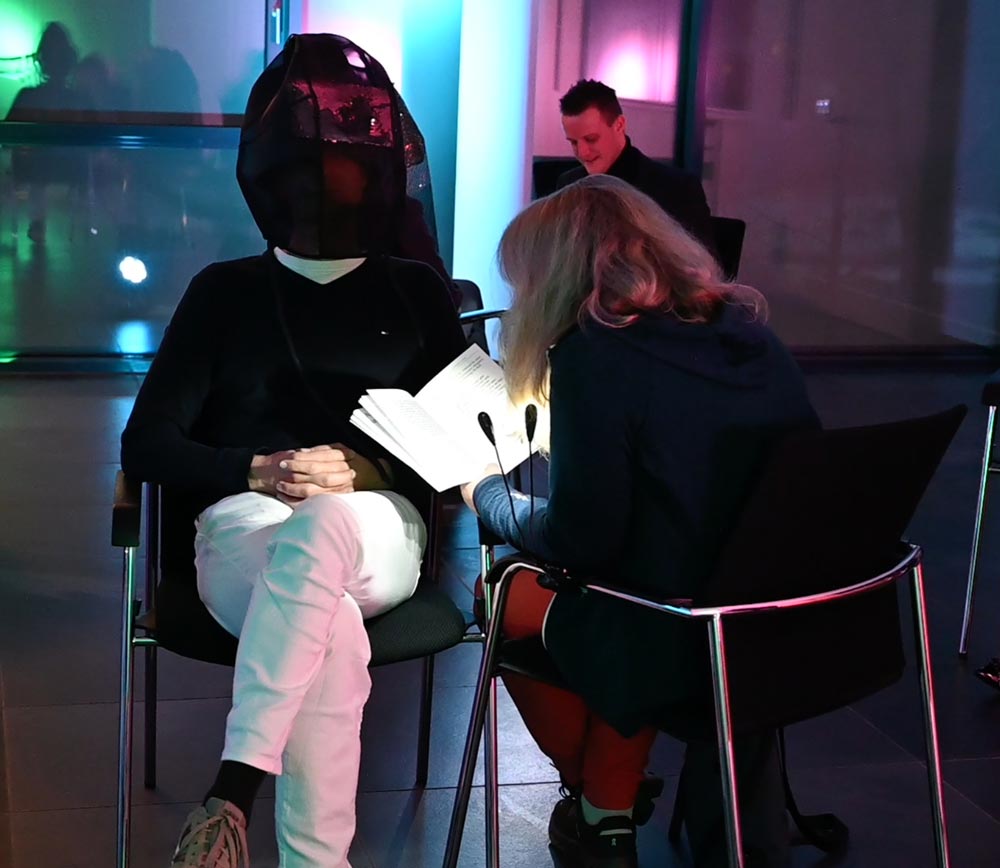
Raiffeisenbank Kitzbühel – St. Johann has been cultivating an exceptional art collection since 2004 under the expertise of curator Günther Moschig. Now, they are taking a bold step forward, merging creativity and finance in an unprecedented way. For the first time, my participative performance ‘Salon d’Amour’ unfolded in a corporate setting—as part of an ART ACADEMY FOR BANK EMPLOYEES, offering a groundbreaking experience at the intersection of art and business. Inspired by Joseph Beuys’ concept “Kunst = Kapital” (Art = Capital), this initiative redefines wealth—not just as money, but as human creativity and expression. This extraordinary temporary program is set to challenge perspectives and reshape the way we see art in business.
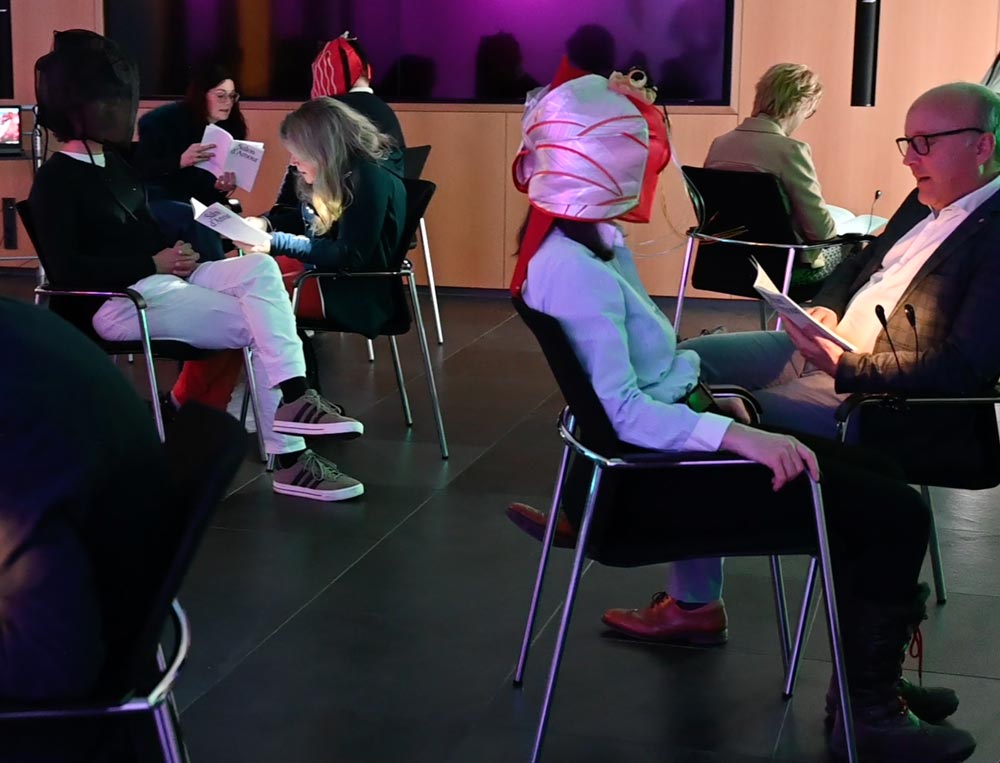
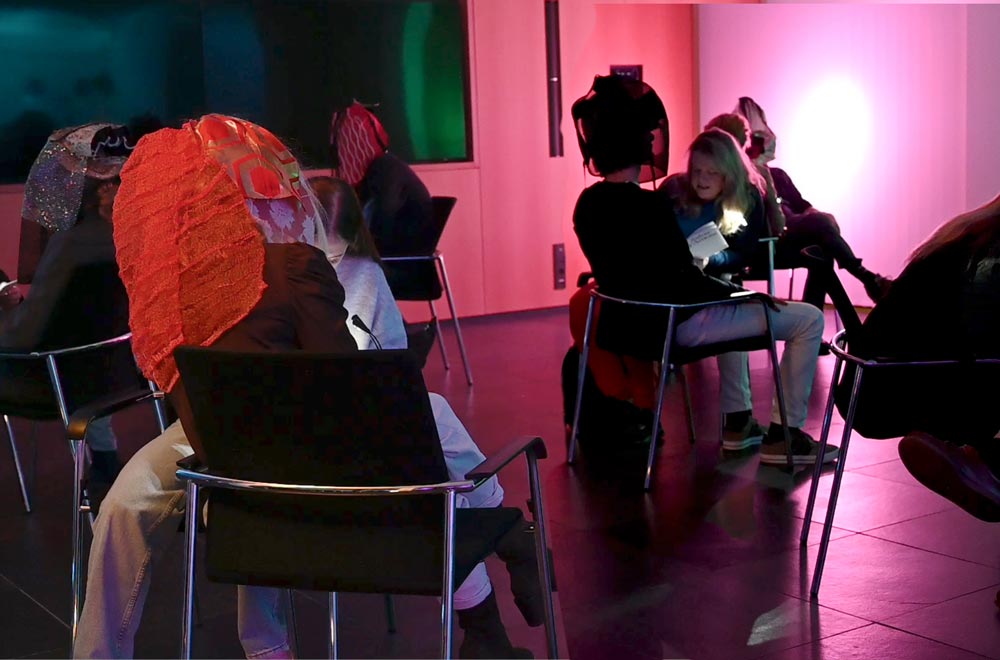
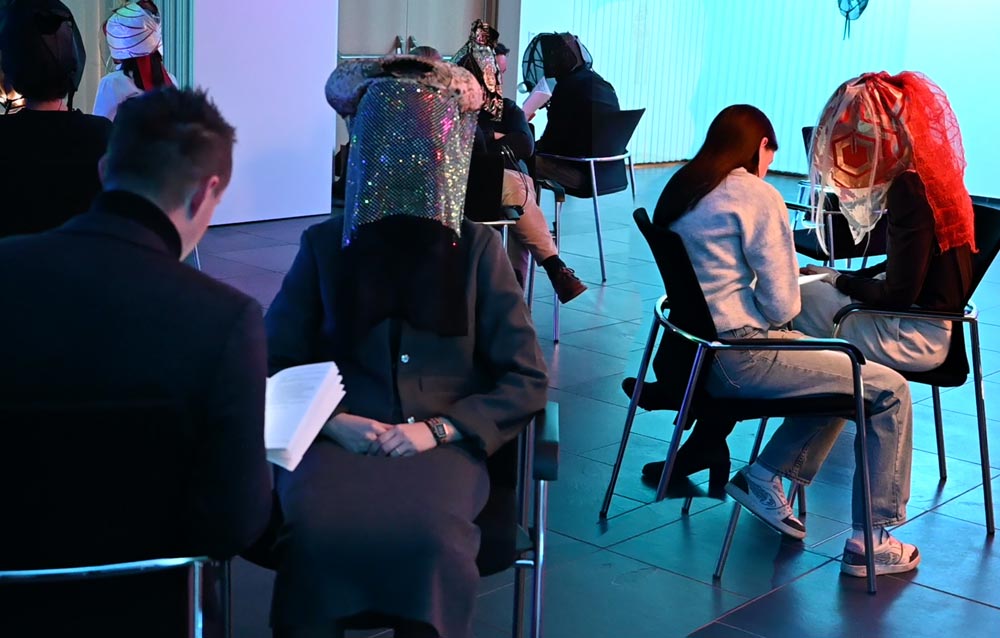
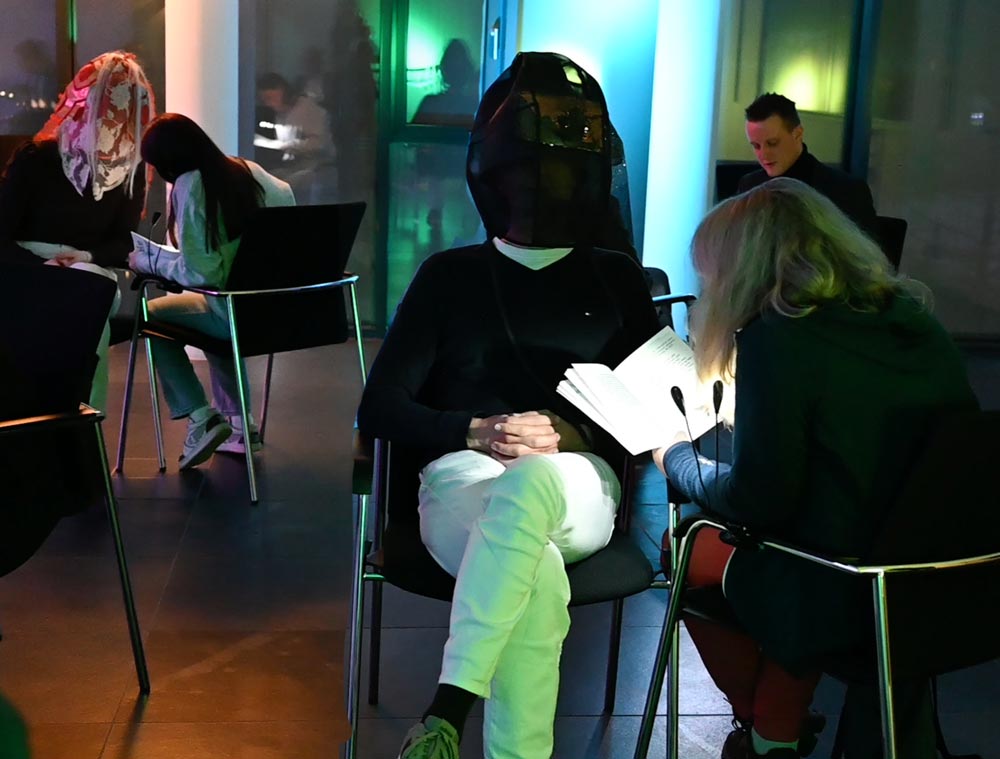
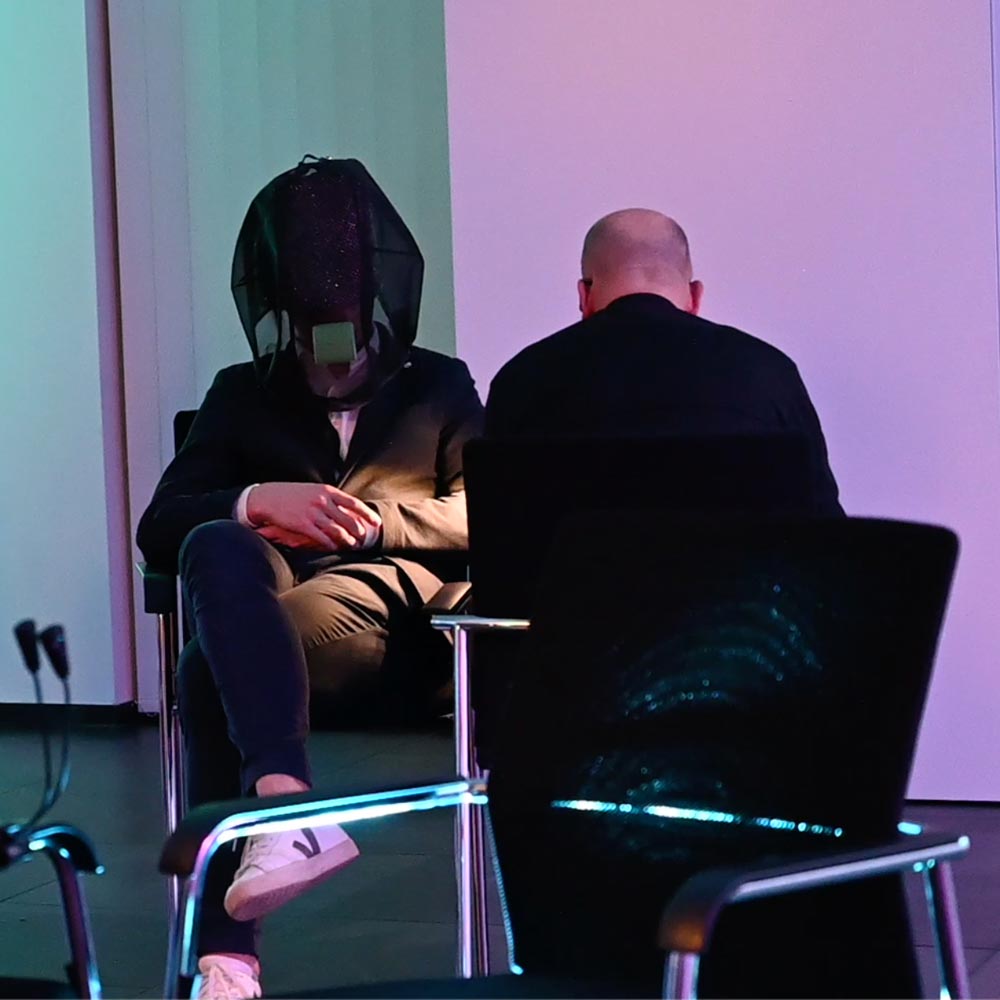
Above images: Salon d’Amour – participative performance in collaboration with curator Günther Moschig and Raiffeisenbank Kitzbühel – St Johann. In the context of the Art Academy RBKS for their banker employees.
Salon d’Amour performance concept, art direction, choreography, manuscript and masks: Margret Wibmer; Soundscape: Robert Poss; Graphic design manuscript: PEACH Wien Participants: bankers Raiffeisenbank Kitzbühel – St. Johann and special guests. Photography: Margret Wibmer.
Kultur- und Gemeinschaftshaus Neuwirt in Wattens, Austria. September 2023. I.c.w. (Markus Strieder and Alexander Erler).
Video documentation performance at Kultur- und Gemeinschaftshaus in Wattens, Austria. 2023.
Concept, art direction, choreography, manuscript and masks: Margret Wibmer / Soundscape: Robert Poss / Videodocumentation: Styleconception / Light: Daniel Kolb / Translations: Astrid Tautscher / Graphic Design: PEACH Wien / Actors: Robert Egger, Judith Erler and participating public / assistant: Dorothea Hartmann, Lea Schneider, Magdalena Schweiger, Lydia Steiner.
Produced by Kunstraum Wattenbach (Markus Strieder and Alexander Erler).
Funding was provided by Stadtgemeinde Wattens, Land Tirol, Kunstraum Wattenbach.
Natlab Eindhoven, The Netherlands. December 2016. Curated by Pauline Terreehorst.
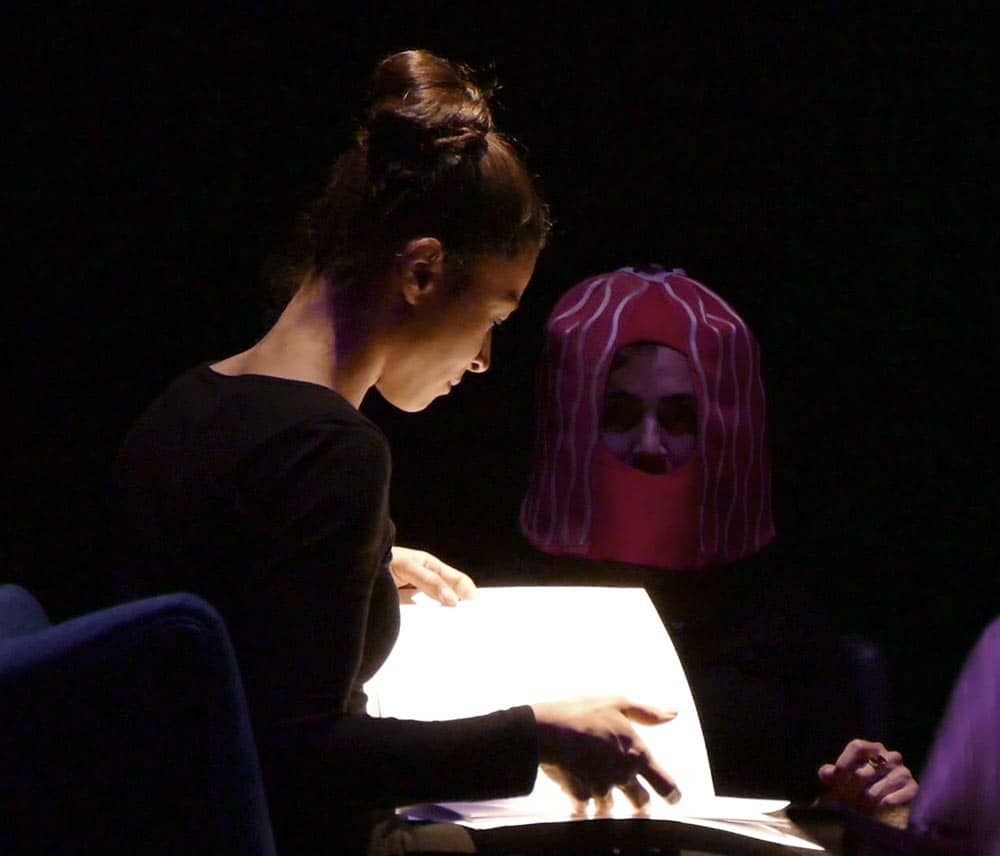
Love, that most loaded word, is the subject of artist Margret Wibmer’s unapologetically intimate work, Salon d’amour. Without screens or networks, recordings or photographs, love is expressed through language, in the present moment, from one person to another.
From the first ceremonious moments of this performance, visitors become attuned to the tensions of love, the flirtatious hiding and teasing.No longer a traditional theater space, the stage area has been reinvented as a semi-private chamber where people can comfortably sit in pairs. A Love letters in hand, participants read out loud to each other. While they can choose to be readers, listeners, or observers, only listeners have the privilege of wearing one of the unique masks designed for Salon d’amour.
Crossing generations and languages, these expressions (or confessions) of love by globally recognised artists, poets, composers, and others, reanimate the words on the page: breathing life into letters from the past. Intermittent live readings from two actors give focus to the act of reading and listening, while a soundscape composed by Robert Poss supports the warm atmosphere of this unusual setting.
From ‘A Decisive Moment: Margret Wibmer Salon d’amour,’ an essay by Marianna Maruyama, 2016
Salon d’amour, a participatory performance. Natlab, Eindhoven, 2016.
Concept, choreography, video editing, masks: Margret Wibmer / Soundscape: Robert Poss / Video and photography: Florian Krepcik / Actors: Megan M. Garr, Mario van Brakel, Marianna Maruyama, Jaïr Tchong and participating public.
Special thanks to the students from Design Academy Eindhoven (Maria Caye, Pranav Kochatta, Giulia Pompilij, Martina Huynh, Thea Christy-Parker, Virginia Vivaldi) and volunteers.

